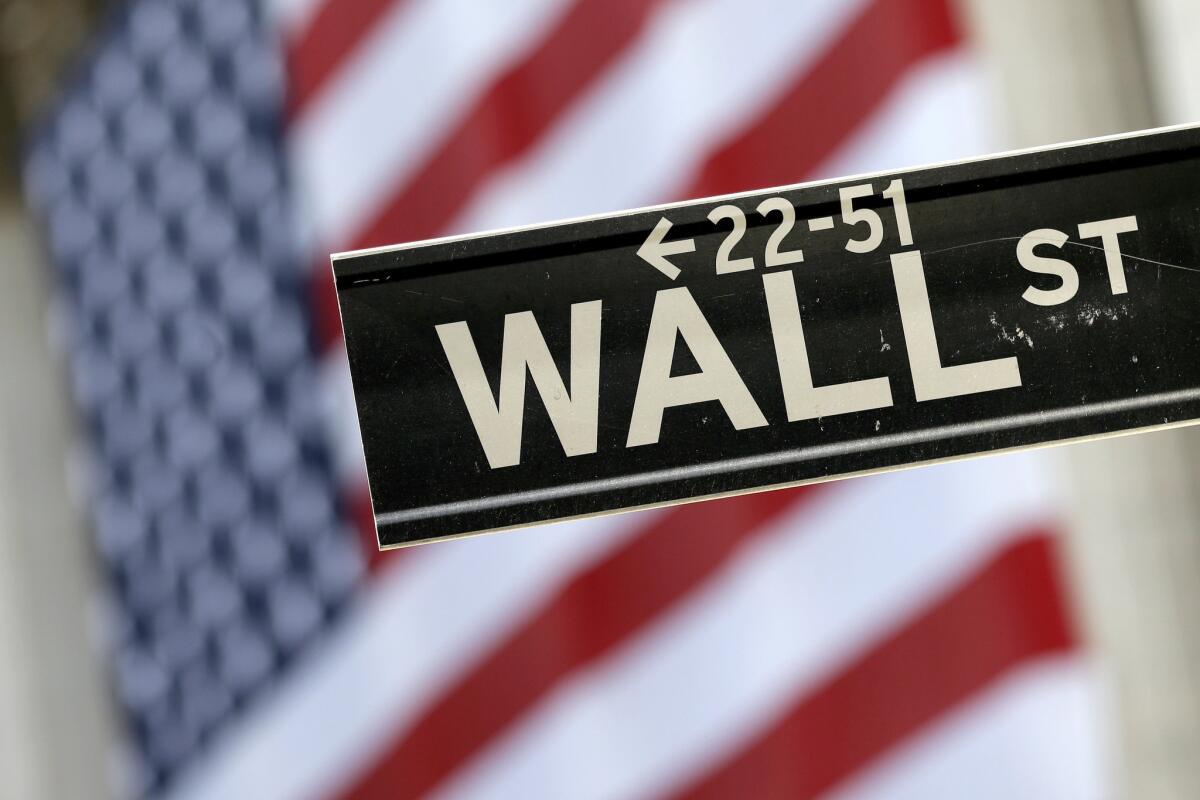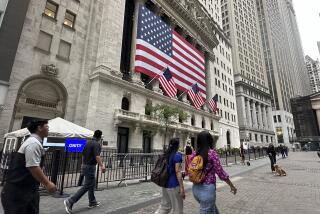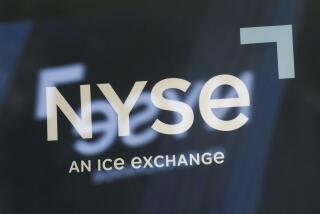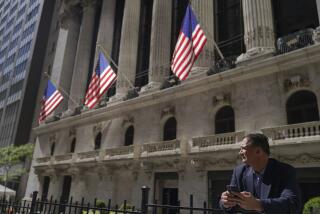Stocks fall again on coronavirus fears, but less sharply

This weekâs sharp sell-off on Wall Street eased Wednesday, with the Standard & Poorâs 500 index and Dow Jones industrial average notching smaller declines and the Nasdaq composite regaining a little ground.
Smaller-company stocks bore the brunt of the selling. The bond market continued to flash warning signs as long-term Treasury yields fell further below short-term yields.
Worry about economic fallout from the coronavirus outbreak that originated in China has fueled this weekâs sell-off, which has wiped out the U.S. marketâs gains for the year.
The virus continues to spread and threatens to hurt industrial production, consumer spending and travel. More cases are being reported in Europe and the Middle East. Health officials in the United States have been warning Americans to prepare for the virus.
The coronavirus outbreak has erupted into the Islamic Republicâs latest image crisis. The governmentâs handling of the virusâ spread is a critical test not only for its healthcare industry but also for its political legitimacy.
âThe market is still digesting the full impact of what the coronavirus could mean for global [economic] growth and, more importantly, on earnings growth for a lot of companies,â said Nadia Lovell, U.S. equity strategist at J.P. Morgan Private Bank.
The S&P 500 index fell 11.82 points, or 0.4%, to 3,116.39. Itâs on track for its biggest monthly decline since May. The Dow dropped 123.77 points, or 0.5%, to 26,957.59, bringing its three-day loss to 2,034 points. A modest rally in technology stocks helped nudge the Nasdaq composite up 15.16 points, or 0.2%, to 8,980.77.
The Russell 2000 index of smaller-company stocks declined 19.14 points, or 1.2%, to 1,552.76.
The coronavirus outbreak has infected more than 81,000 people globally and continues to spread. Brazil has confirmed the first case in Latin America. Germany, France and Spain were among the European nations with growing caseloads. New cases are also being reported in several Middle Eastern nations.
U.S. cases total 57, and the White House has requested $2.5 billion for vaccine development, treatment and protective equipment. On Tuesday, U.S. health officials called on Americans to be prepared for the disease to spread in the United States.
The Centers for Disease Control and Prevention has advised communities to take precautions in the event that the coronavirus spreads.
Bond yields fell much of the day, then mostly recovered. The yield on the 10-year Treasury inched up to 1.34% from 1.33%. The yield on the three-month Treasury bill edged up to 1.51%. The inversion in the yield between the 10-year and the three-month Treasurys is a red flag for investors because it suggests that bond investors expect growth to slow so much, the Federal Reserve will soon feel compelled to slash short-term rates to try to support the economy.
The indicator isnât perfect, though, and has given false signals in the past.
âThe bond market is sending us some warning signals that we should pay attention to, and thatâs what you see playing out in the market today,â Lovell said.
Investors have been moving more money into the relative safety of bonds. Traders are concerned the global economy could slow as China, the worldâs second-largest economy, struggles to contain the outbreak.
âA slowdown definitely is on the horizon, but itâs transitory,â Lovell said. âI would expect economic growth to reaccelerate in the back half of the year as China starts to come online.â
Energy stocks led the decliners Wednesday as the price of U.S. crude oil fell 2.3%.
Cruise operators continued falling amid persistent virus fears. Norwegian Cruise Line Holdings fell 7.9%, Royal Caribbean Cruises dropped 8.1%, and Carnival slid 7.5%.
Other companies that depend on travelers also declined. Expedia lost 7.1%.
Technology stocks, which were hit particularly hard earlier this week, eked out a modest gain. Microsoft rose 1.2% and Adobe rose 1%.
TJX, the parent of retailer TJ Maxx, surged 7.2% after beating Wall Streetâs fourth-quarter profit forecasts and raising its dividend.
Disney fell 3.8% the day after Bob Igerâs surprise announcement that he would immediately step down as chief executive of the entertainment giant. Iger steered the companyâs absorption of big moneymakers, including Star Wars, Pixar, Marvel and Foxâs entertainment businesses. He also oversaw the launch of the Disney+ streaming video service.
A government report Wednesday showed that sales of new homes jumped 7.9% in January to the fastest pace in more than 12 years.
However, Toll Bros. shares dropped 14.6% after the home builder reported disappointing fiscal first-quarter profit. The poor results weighed on nearly all home builder stocks. D.R. Horton fell 2.6%.
More to Read
Inside the business of entertainment
The Wide Shot brings you news, analysis and insights on everything from streaming wars to production â and what it all means for the future.
You may occasionally receive promotional content from the Los Angeles Times.












